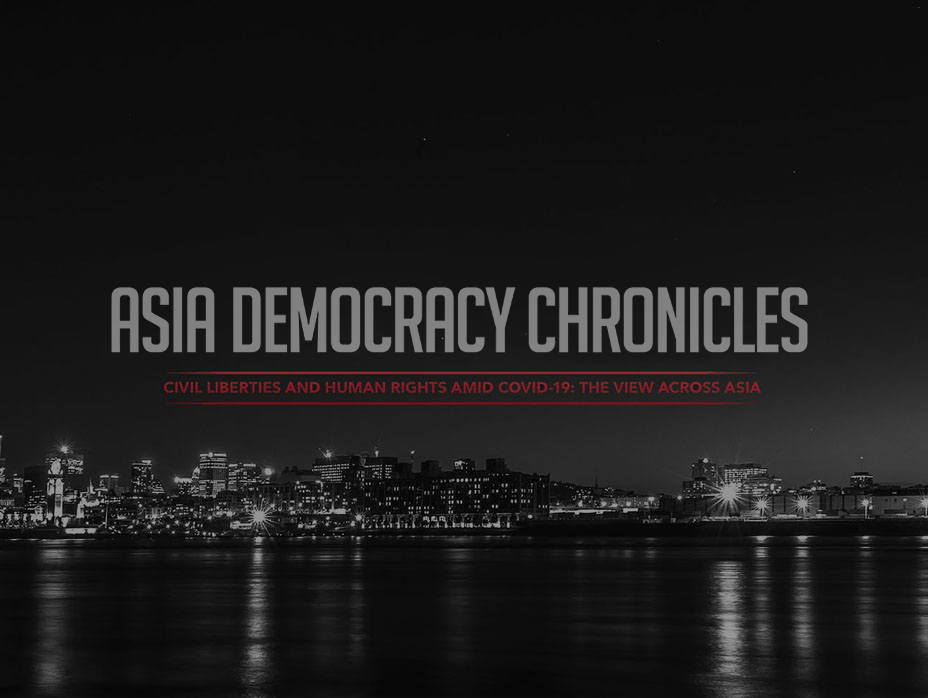|
Getting your Trinity Audio player ready...
|
The Russian invasion of Ukraine has turned wary eyes toward China, whose desire to “reunite” its “renegade province” Taiwan is well known. Yet even without it setting a single military boot on Taiwan’s shores, China has already been trampling on the rights of Taiwanese citizens.
In the last several years, China has been throwing Taiwanese citizens into its jails, on many occasions without even informing their immediate family members for months about their arrest and detention. Among these Taiwanese are those who have been imprisoned on political charges, such as rights advocate Lee Ming-Che.
For sure, these acts by Beijing are part of its efforts to demonstrate and assert its “one China” policy to the rest of the world. What stands out in the case of Lee, however, was that Beijing saw it fit to punish him for practicing his freedoms of speech and expression — freedoms that are respected and safeguarded in his own home country, Taiwan.
Lee was released recently and sent back to Taiwan. Sentenced by a Chinese court to five years in prison “for subversion of state power” — the first Taiwanese to be charged with such — Lee first went missing in March 2017 after he went to Zhuhai in southern Guangdong province in China to visit friends. It took 10 days after his family lost contact with him for a spokesperson of the Taiwan Affairs Office of the State Council of China to confirm that Lee was still in China. Until the end of May 2017, his family did not receive a single official notice of arrest from the Chinese government. On Sept. 11, 2017, he was finally put on trial and was convicted two months later.
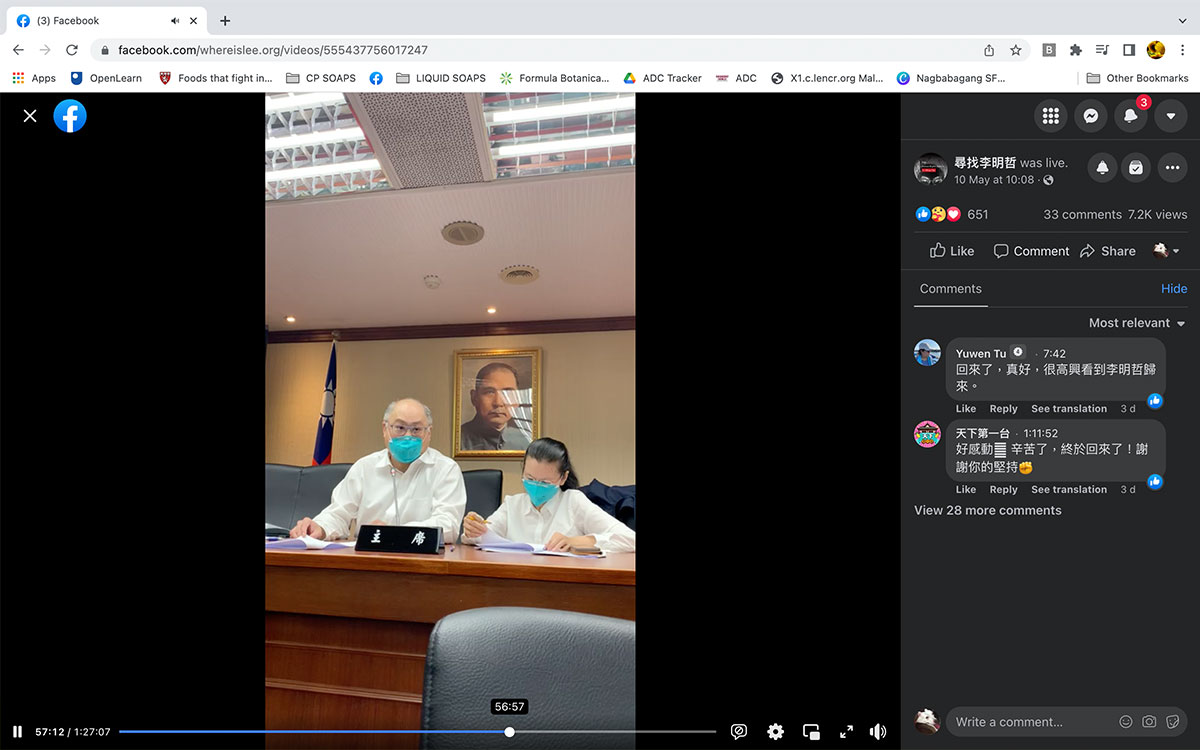
Lee Ming-che and his wife, Lee Ching-yu, face the media for the first time since his return to Taiwan in April 2022 after spending five years in jail in China. (Screenshot from the Where Is Lee Facebook page)
Lee, a community college project manager in Taipei, had shared in online chats with Chinese participants Taiwan’s experience of transitioning from autocracy to democracy. According to many accounts, Lee’s remarks included advocating Western democracy, multi-party politics, and political party rotation in power. He also commented on the 1989 Tiananmen Square massacre and the collapse of the Soviet Union, as well as on social events in China.
In Taiwan, where Lee was when he was making his online remarks, nothing Lee said constituted a crime. In fact, in its official statement on Lee’s return to Taipei on April 15, 2022, Taiwan’s Mainland Affairs Council said, “The government believes that ‘spreading democratic ideals is not a crime.’”
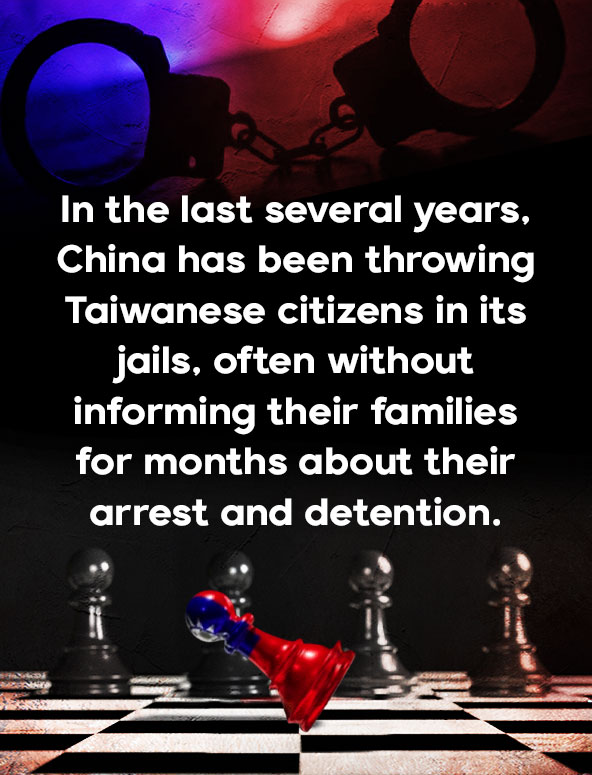
But in the eyes of Beijing, what Lee did was covered by Article 105 of China’s Criminal Law, which punishes “whoever organizes, plots, or acts to subvert the political power of the state and overthrow the socialist system, the ringleaders or those whose crimes are grave.”
Article 8 of the Chinese Criminal Law also stipulates that “this Law may be applicable to any foreigner who commits a crime outside the territory and territorial waters and space of the People’s Republic of China against the State of the People’s Republic of China or against any of its citizens, if for that crime this Law prescribes a minimum punishment of fixed-term imprisonment of not less than three years.”
“However,” it continues, “this does not apply to a crime that is not punishable according to the laws of the place where it is committed.”
Missing in China
Members of Taiwan’s civil society have argued that Chinese courts have no jurisdiction over whatever it was Lee said. They also say that if Chinese authorities claim that Lee’s alleged “criminal conduct” caused harm to the people of China, Beijing needs to explain how and what damage a discussion of democracy could cause to Chinese netizens.
Few, however, expect Beijing to issue any explanation. In truth, the exchange of information — let alone explanations — across the Strait is far from smooth, with relatives of Taiwanese detained in China often having to resort to unofficial middlemen to try to get some details on their loved ones.
For example, according to Taiwan’s Straits Exchange Foundation, it received 149 complaints (from May 2016 and September 18, 2019) about Taiwanese who had suddenly gone missing in China. It said that 82 were confirmed to be still in China, but did not provide any more details on whether or not these individuals had been detained or arrested. It also did not have any other information on the remaining 67 Taiwanese said to be missing across the Strait.
Some cross-strait observers, though, have suggested that Taiwanese authorities are not keen to divulge too much information to the public about the Taiwanese detainees in China for fear of putting them at risk.
Observers have noted as well that since the Democratic Progressive Party (DPP) retook the reins of power in Taiwan in 2016, China has been hauling off more Taiwanese to jail. In Beijing’s view, apparently, the DPP, currently led by President Tsai Ing-Wen, is bent on asserting Taiwan’s independence from China. By arresting and detaining Taiwanese citizens, Beijing is essentially telling the DPP that its “one China” position is unwavering and can be enforced.
Indeed, the day after President Tsai’s National Day speech on Oct. 10, 2020, the Chinese state-owned China Central Television ran what it called the “Taiwan spy case” for three consecutive days, and released images of Li Mengju, Cai Jinshu, Shi Zhengping and other Taiwanese who had gone missing in China in 2018 and 2019.
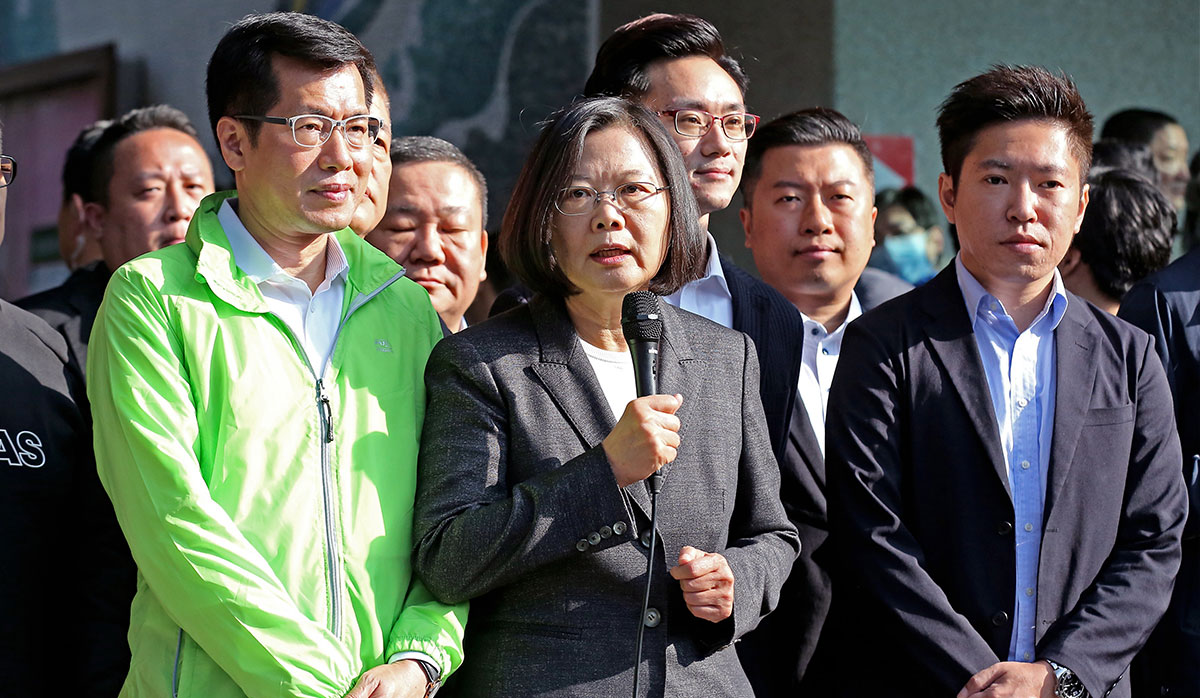
Observers note that since the Democratic Progressive Party, led by President Tsai Ing-wen, was elected into power, more and more outspoken, pro-democracy Taiwanese have been arrested and jailed in China.
Li is a businessman, Cai is an academic who is known to be a supporter of the Beijing-friendly Kuomintang (Chinese Nationalist Party or KMT), and Shi is an economist and former university professor. All three were first held “on national security grounds.” While little is known about what has happened to Cai following the official confirmation of his detention in Fujian province in southeastern China in September 2019, Shi was reported to have received a four-year jail term for espionage in November 2020.
Li, meanwhile, was sent to prison for a year and 10 months, also for espionage. He was released in 2021, but has not been allowed to go home to Taiwan because he was also slapped with two years of “political rights deprivation.”
Lee Ming-Che was similarly slapped with two years of “political rights deprivation,” which was why Taiwanese authorities were unsure whether he would be able to return to Taiwan after he completed his five-year jail sentence. Not surprisingly, there has been no explanation why Li Mengju continues to be unable to return home while Lee Ming-Che was allowed to do so.
Ignoring an agreement
Last year, the Madrid-based rights foundation Safeguard Defenders released its report “China’s Hunt for Taiwanese Overseas,” which detailed how Beijing has been pressuring countries to extradite Taiwanese to China, “often after refusing them access to Taiwanese consular support.”
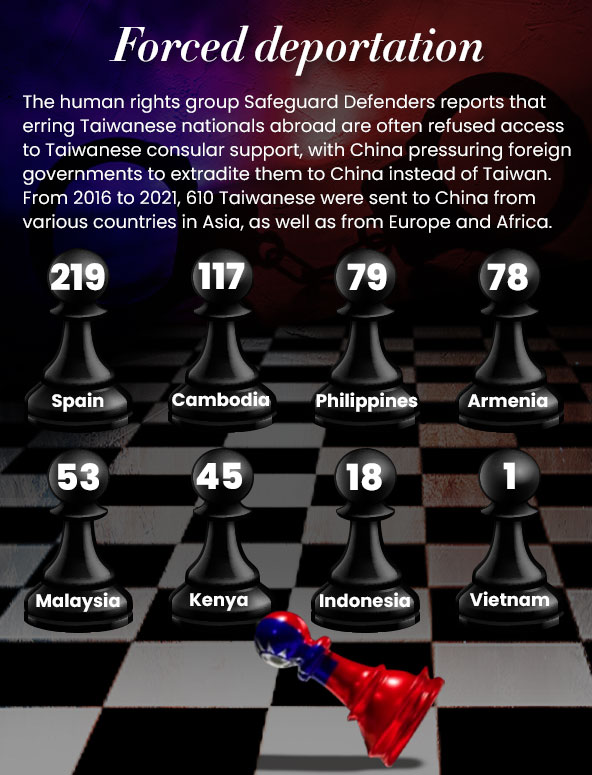
Source: Safeguard Defenders
According to Safeguard Defenders, more than 600 Taiwan nationals had been extradited from other countries to China between 2016 and 2019. Spain extradited 219 Taiwanese to China during the period, the highest among the countries covered by the report.
Safeguard Defenders said that the practice put the Taiwanese “at risk of human rights abuses.” It added, “It is a direct refutation of China’s obligations under the Cross-Strait … Joint Crime-Fighting and Judicial Mutual Assistance Agreement. It is also used as a tool for China to undermine Taiwanese sovereignty.”
In 2009, the Straits Exchange Foundation and its Chinese counterpart, the Association for Relations Across the Taiwan Strait, signed the Agreement, supposedly to “safeguard the rights and interests of the peoples on the two sides of the Taiwan Strait, and maintain law and order in cross-strait contracts.”
In its report, Safeguard Defenders suggested that “governmental and multilateral stakeholders, especially those participating in mutual law enforcement or international crime prevention efforts, must emphasize to China that ongoing rejection of its mutual law enforcement agreement with Taiwan should have an impact on other mutual law enforcement agreements.”
“These are things China cares deeply about,” it said, “and this presents leverage to hold it accountable where it believes it can operate with impunity, such as its bullying of Taiwan.”
“Chinese bullying victim” Lee Ming-Che, for his part, is only too glad to be home. He told the Taiwanese media after he arrived in Taipei a few weeks ago, “I’m still tired and feel fairly new to the world. I have no sense of the ravages of the pandemic, and now I have to quarantine.
“However, the current feeling of isolation and the feeling of isolation I got when I was in China is completely different. Now I am hugged by love, not besieged by terror,” he adds.
Yet it seems Lee’s experience in China has not made him change his convictions at all. A statement that he and his wife Lee Ching-Ye posted on the Facebook page of his rescue team read in part: “The suffering of our family is over, but there are still countless people whose human rights have been violated in China. May they be free one day. Freedom is to be fought for by oneself. Just as the people of Taiwan fought for freedom, democracy, and human rights with blood and tears under martial law. May the Chinese people know and learn. Bless the Chinese people.” ●
Li-Ang Chen is a human rights activist based in Taiwan.











